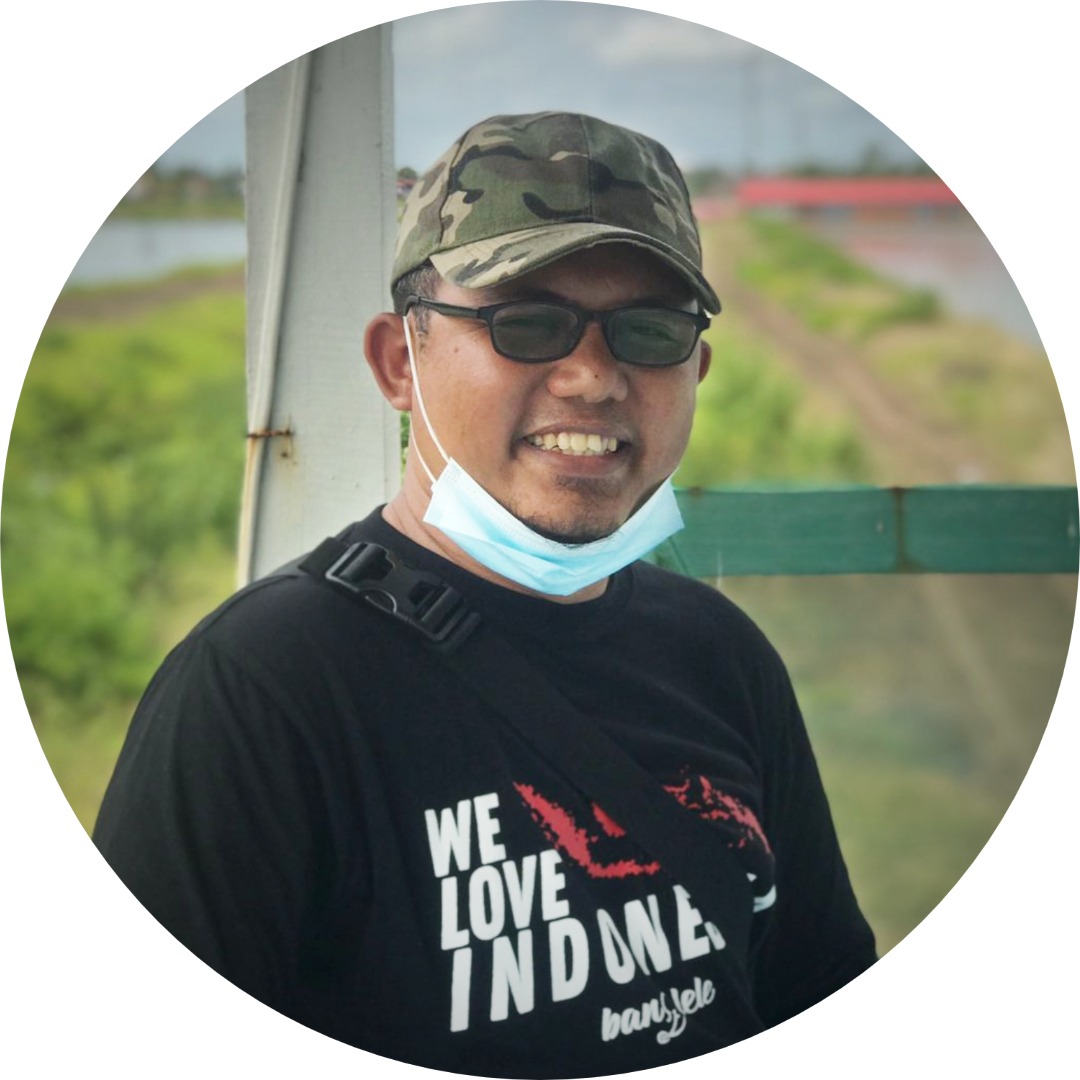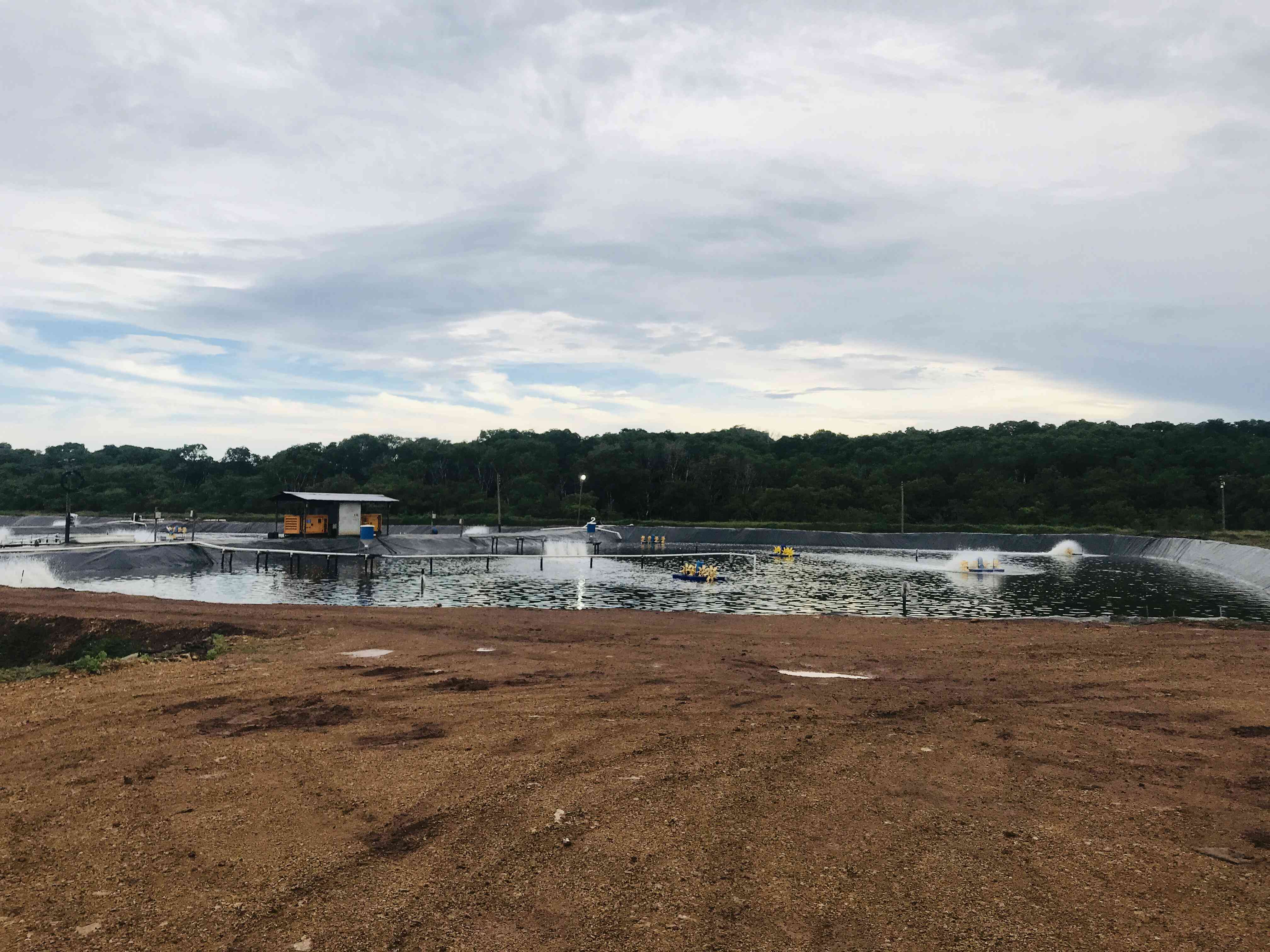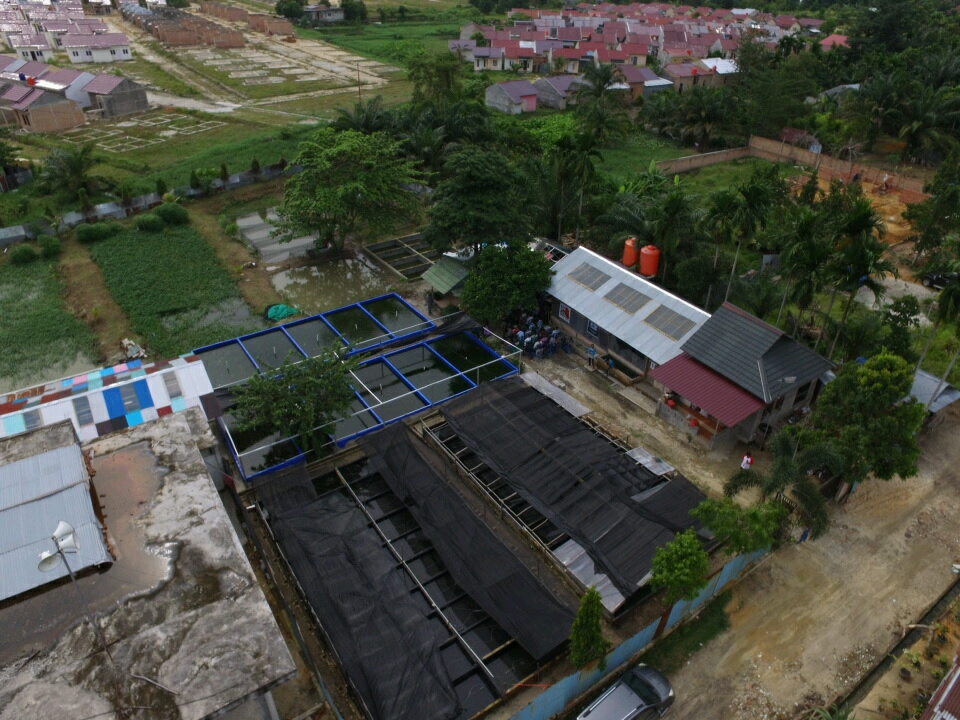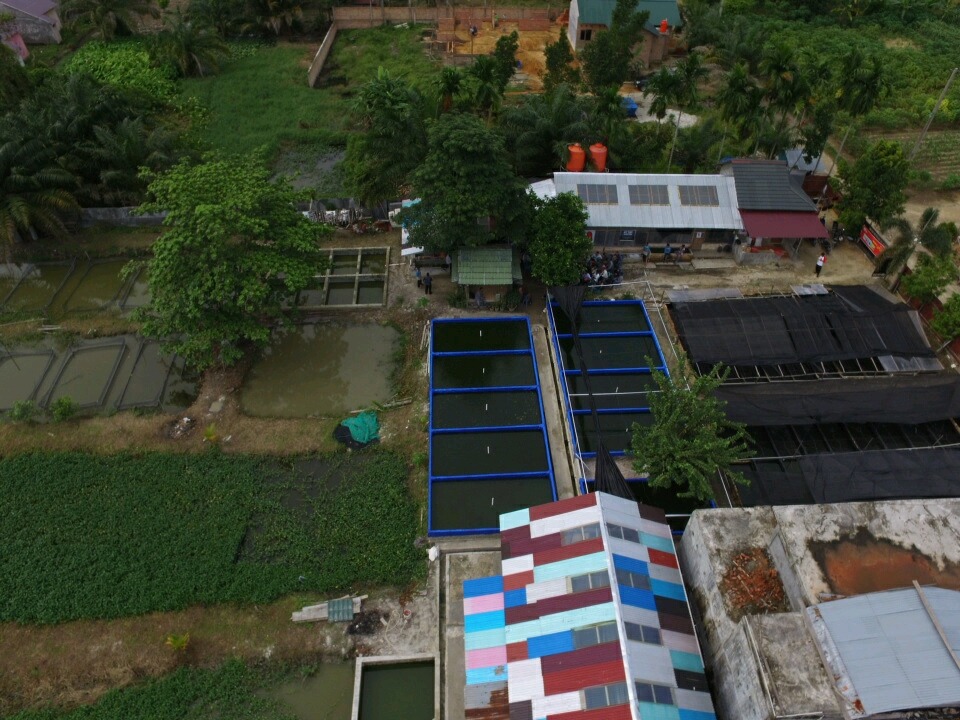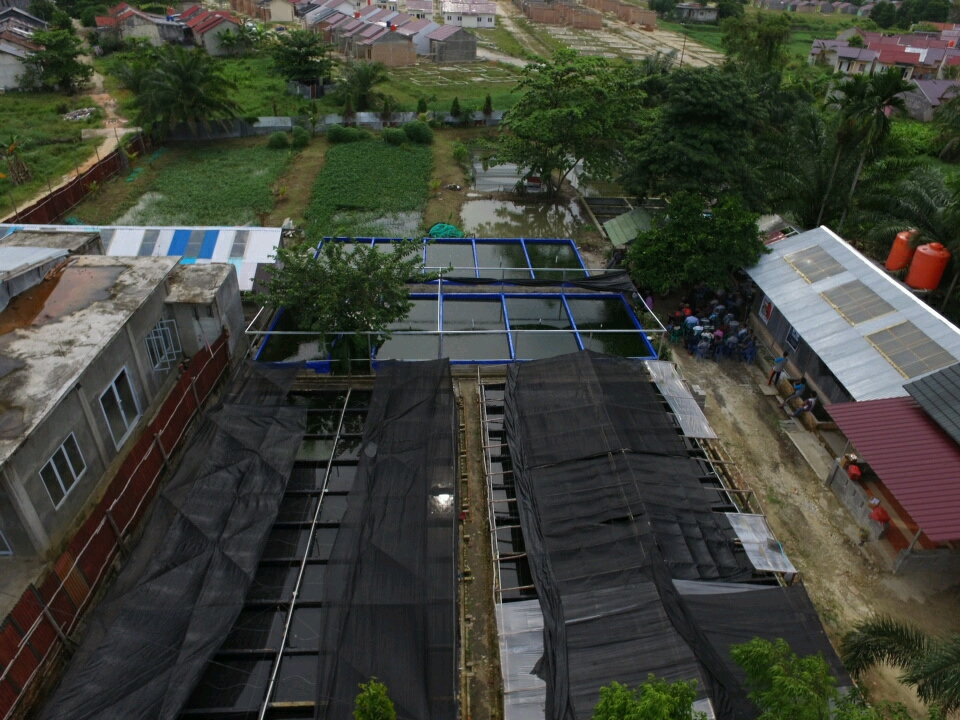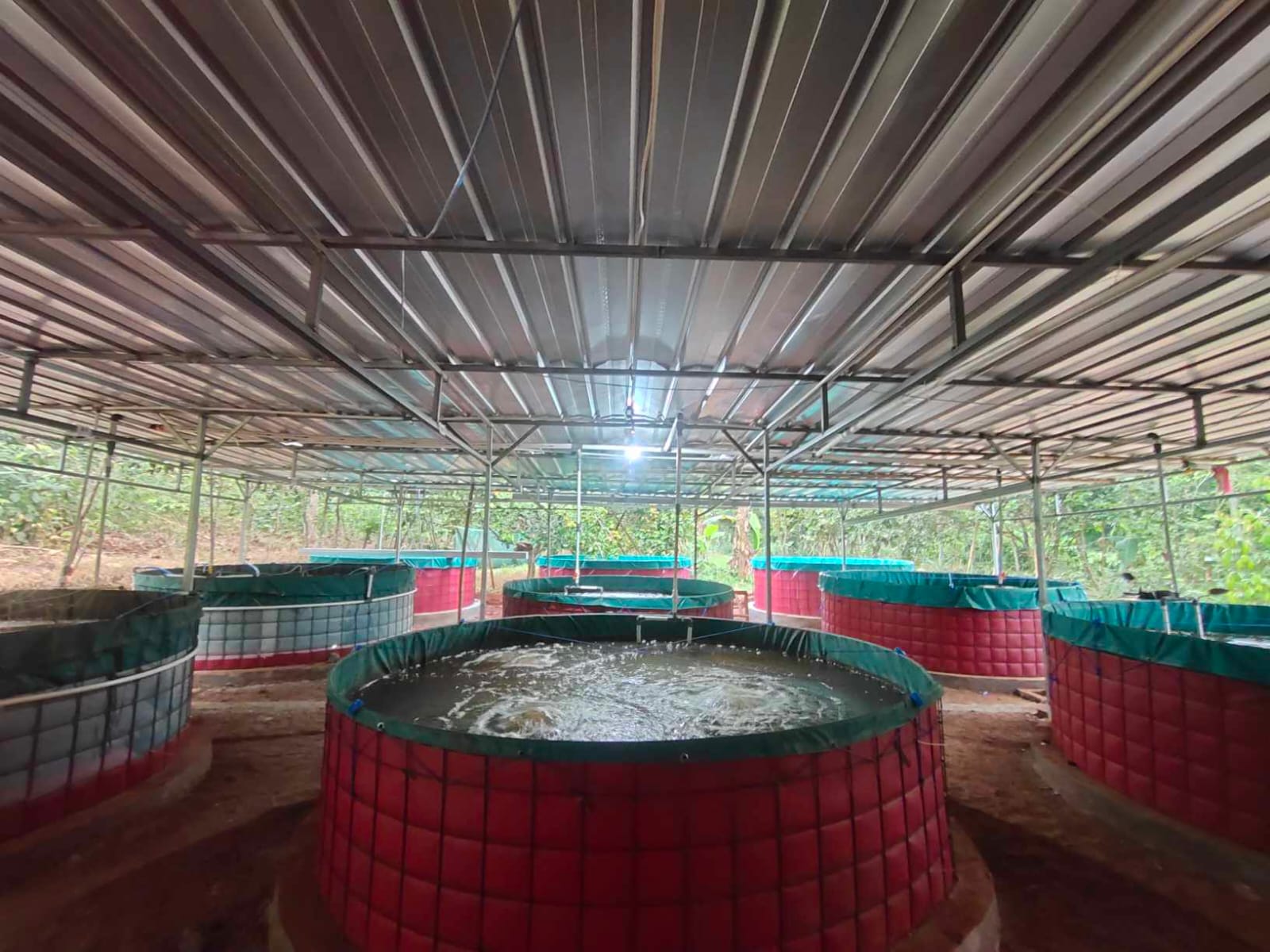Riau Province, which is located in the central part of the east coast of the islandSumatra and directly borders the Malacca Strait, has a very strategic geographical, geoeconomic and geopolitical position. This area is the main focus of regional and international trade routes in the ASEAN region. One of the great potentials in Riau is the freshwater fisheries sector, especially in pangasius fish cultivation.
In data submitted by the Head of the Riau Province Maritime and Fisheries Service, Herman Mahmud, the prospect of land for fish cultivation is still very broad. The freshwater land area reaches 53,020.07 km², but only around 6,000.70 km² is utilized. This makes cultivating freshwater fish, especially pangasius fish, have great potential in Riau.
Opportunities for the pangasius industry for local consumption are wide open, especially after the Ministry of Maritime Affairs and Fisheries banned the import of pangasius. The high food safety requirements that will be set by the Ministry of Maritime Affairs and Fisheries through the Indonesian National Standards (SNI) also provide an opportunity for local pangasius to dominate domestic and international markets. After the ban on imports of pangasius from Vietnam by the European Union (EU) and the United States (US), Indonesian pangasius has large export potential.
Seeing the huge business potential of pangasius, many entrepreneurs are starting to get involved in the pangasius hatchery and rearing business. Riau Province, as one of the centers for pangasius cultivation in Indonesia, is expected to become a pangasius business model for other regions in Indonesia. Edy Darmanto and Agus Mira, a pair of pangasius hatchery entrepreneurs in Pekanbaru, are willing to be respondents for interviewed regarding the pangasius hatchery business in Riau Province, especially in Pekanbaru City. Apart from that, Abdul Haris, a pangasius hatchery entrepreneur who actively innovates to improve the quality of hatcheries, was also the second respondent.
Why choose a pangasius fish hatchery business?
According to the couple Edy Darmanto and Agus Mira, the pangasius fish hatchery business is very promising, especially in its business cycle which has a fairly fast turnaround compared to the grow-out segment. The problem lies in the high dependence on the season, both for larvae and natural food. Apart from that, the price is greatly influenced by the season, especially related to the availability of fish food which is feared to become more expensive in the future without being offset by an increase in the price of pangasius fish seeds.
Abdul Haris also believes that fisheries businesses mostly choose types of fish businesses that are in demand and have relatively affordable prices other than pangasius fish, such as catfish, tilapia and goldfish. He chose the pangasius fish hatchery business because the process was not too complicated and easy to implement. Although each process definitely has advantages and disadvantages, the advantage in this business is the ability to manage time and plan well. The obstacles are generally related to the natural factors of the fish themselves, which in several months will experience a decline in production.
Obstacles in the pangasius fish hatchery business
The main obstacles faced by pangasius fish hatchery businesses in Riau Province include several crucial aspects. Firstly, the difficulty of obtaining larvae is a serious challenge, considering that larvae are a very vital early stage in the cultivation cycle. Limited availability of larvae can hamper overall production. Apart from that, the increasing price of silk worms is also a problem because these worms are an important component in the feed of pangasius larvae. Price increases can have a negative impact on production costs and, as a result, affect farmers' profitability.
Furthermore, the problem of market monopoly by irresponsible parties adds complexity to this business. The existence of certain groups that control the market and sell pangasius fish seeds only to certain locations can be detrimental to local farmers. This monopoly can result in inequality in seed distribution and unfair prices. Apart from that, the high death rate during harvest is also a significant obstacle. High mortality can be detrimental to cultivators in terms of production results and expected profits. Therefore, there is a need for strategies and innovations in cultivation management to overcome this problem.
Apart from that, the difficulty of obtaining quality parent feed with good protein content is an additional obstacle. Good broodstock feed is very important for optimal growth of larvae and pangasius fish as a whole. The availability of poor quality parent feed can inhibit the growth and development of larvae, reduce survival rates, and affect the quality of the harvest. Therefore, finding a solution to obtain high quality parent feed is a priority in efforts to increase the efficiency and sustainability of the pangasius fish hatchery business in Riau Province.
Spawning technique in pangasius fish
Challenges and opportunities for the pangasius fish hatchery business in Riau Province
One of the significant challenges facing the pangasius fish hatchery industry in Riau Province is competition with pangasius fish seeds originating from neighboring provinces. The courage of producers from surrounding provinces to sell pangasius fish seeds at prices much lower than those prevailing in Riau Province is a serious threat. The direct impact of this is a reduction in the production costs of seeds produced by local cultivators. This unhealthy price competition can hamper the growth of the pangasius fish hatchery industry in the region and affect the welfare of local farmers.
On the other hand, the spike in feed prices in the aquaculture segment is another factor that influences the dynamics of demand for pangasius fish seeds. The increase in overall production costs may make cultivators more cautious in developing their business, resulting in a slowdown in demand for seeds in recent months. Nevertheless, business opportunities in the pangasius fish hatchery sector remain large. The high public demand for pangasius fish, both in the form of fresh fish which is relatively affordable and salmon which has been processed and is widely known, provides a positive impetus for the growth of this sector.
Abdul Haris is optimistic about the growth potential of this industry. He revealed that many hatcheries, especially those that focus on pangasius fish, are planning to increase seed production and the availability of pangasius fish to the public. This can not only meet consumer needs for pangasius fish, but also make this fish a commercial choice that can be enjoyed by the wider community. Through innovation and cooperation between business actors, the government and various related parties, it is hoped that the pangasius fish hatchery industry in Riau Province can overcome challenges, seize opportunities and make a positive contribution to the regional and national economy.
Local government support for pangasius fish hatchery business
Although the pangasius fish hatchery business in Riau Province is recognized and receives support in the form of assistance with the CPIB (good fish hatchery method) certification process from the local government, this support is still limited. The government's main focus in providing assistance seems to be more oriented towards certification aspects to ensure good and sustainable seeding methods. While this step is important to ensure production quality, entrepreneurs in this sector are faced with the reality that further support may be required to develop large-scale businesses.
However, entrepreneurs in the pangasius fish hatchery industry in Riau Province are faced with the challenge of not only relying on the government. In achieving business success, they must have the courage to take independent steps. This courage involves independent strategies in business development and efficient business management. Even though the government provides limited support, entrepreneurs need to be proactive in seeking opportunities, overcoming obstacles, and increasing the competitiveness of their industries.
So far, it can be said that the government has generally paid attention to the development of the pangasius fish hatchery business in Riau Province, although there is still room for improvement. With the synergy between the government, business actors and other related parties, it is hoped that a more conducive environment will be created for the growth of the pangasius fish hatchery business.In the future, it is hoped that this collaborative effort can create policies that better support and accelerate the growth of the pangasius fish hatchery industry, provide benefits to the local economy and ensure the sustainability of the fisheries sector in Riau Province.
Edy Darmanto's pangasius cultivation facility
Expectations that have not been achieved in the pangasius fish hatchery business
The existence of forums that facilitate seed marketing, where farmers only need to think about how to produce as many and best pangasius fish seeds as possible without worrying about the seeds not being sold, and price issues can be negotiated together. According to Abdul Haris, there is also hope for new commodities, especially pangasius fish, which have a relatively short rearing period, are efficient in feed consumption, and have very competitive prices so that they can influence growth of pangasius fish hatcheries in a better direction.
In responding to the dynamics of the pangasius fish hatchery business in Riau Province, business actors such as Edy Darmanto, Agus Mira, and Abdul Haris continue to innovate and try to overcome the challenges they face. Even though there are obstacles and constraints, the potential that Riau has in the pangasius fish hatchery business remains attractive and promising. With cooperation between business actors, the government and various related parties, it is hoped that this industry can continue to develop and provide significant economic benefits for local communities as well as a positive contribution to the national economy.





